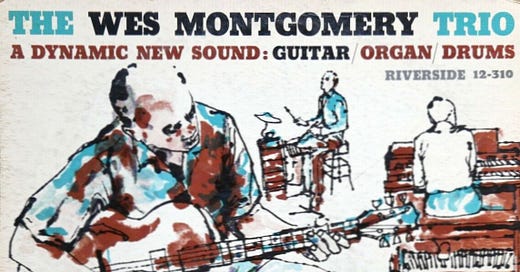Some Jazz Records: Joseph Déjean Clippings
Comments on recordings from musicians and other actors of the jazz scene. Random and not-so-random listening cues from the archives.
Joseph Déjean, a Montreal-born guitarist who lived in France, died in a car accident on June 9, 1976. He was returning from a concert given with the band he worked with, the Cohelmec Ensemble, a unit usually thought of as belonging to French free jazz’s second generation. Déjean was born on August 4, 1947. At the time of his death, he was 28, not old enough to have left behind an extensive record of his musical thinking. One of the few press articles quoting Déjean appeared in Jazz Magazine's June/July 1971 issue. There, he did discuss some of his influences. The short profile was part of a longer piece spotlighting young musicians "to watch." Déjean was presented as belonging to a generation of players who had come directly to free jazz and as blaming himself for being too reminiscent of Sonny Sharrock. During his short career, in addition to his contributions to Cohelmec albums, Déjean recorded with Claude Delcloo’s Full Moon Ensemble, Archie Shepp, Saheb Sarbib, Sunny Murray (one of the drummer’s great unreleased concert tapes, Montreux 1972), and in duet with guitarist Gérard Marais.
Wes Montgomery Trio, The Wes Montgomery Trio, Riverside RLP 12-310 (1156), 1959, LP.
In Jazz Magazine, Joseph Déjean described himself as a musician who played bop terribly although he enjoyed guitarists who played in the style, namely Joe Pass and the 1950s work of Kenny Burrell. Déjean also appreciated Jim Hall, but he considered Wes Montgomery to be “the greatest.” Déjean cited The Wes Montgomery Trio as one of the few albums he had heard early on in his development, when his knowledge was limited to a few Django Reinhardt recordings. Montgomery’s October 1959 sessions with organ and drums were released at the end of that same year by the Riverside label.
The Panassié Sessions, RCA Victor TPRM 7 778, 1967, LP.
Teddy Bunn was another guitarist Joseph Déjean named as an early influence. “His solos could be incredibly modern, even more so than those of Charlie Christian. In particular, he knew how to imply swing,” Déjean told Jazz Magazine in 1971. The article noted that he had heard Bunn on a Sidney Bechet-Mezz Mezzrow record. Quite likely, it was The Panassié Sessions, a 1967 compilation of 1938-39 New Orleans-style recordings produced by Hugues Panassié that featured Bunn on most tracks.
Charlie Haden, Liberation Music Orchestra, Impulse AS-9183, 1969, LP.
Joseph Déjean started to perform in public in 1969, becoming a member of drummer Claude Delcloo’s Full Moon Ensemble later that year. Déjean cited a solo recorded that same year on the other side of the Atlantic as an ideal of simplicity and musicality: trombonist Roswell Rudd’s contribution to the very brief rendition of “We Shall Overcome” closing bassist Charlie Haden’s Liberation Music Orchestra album.






